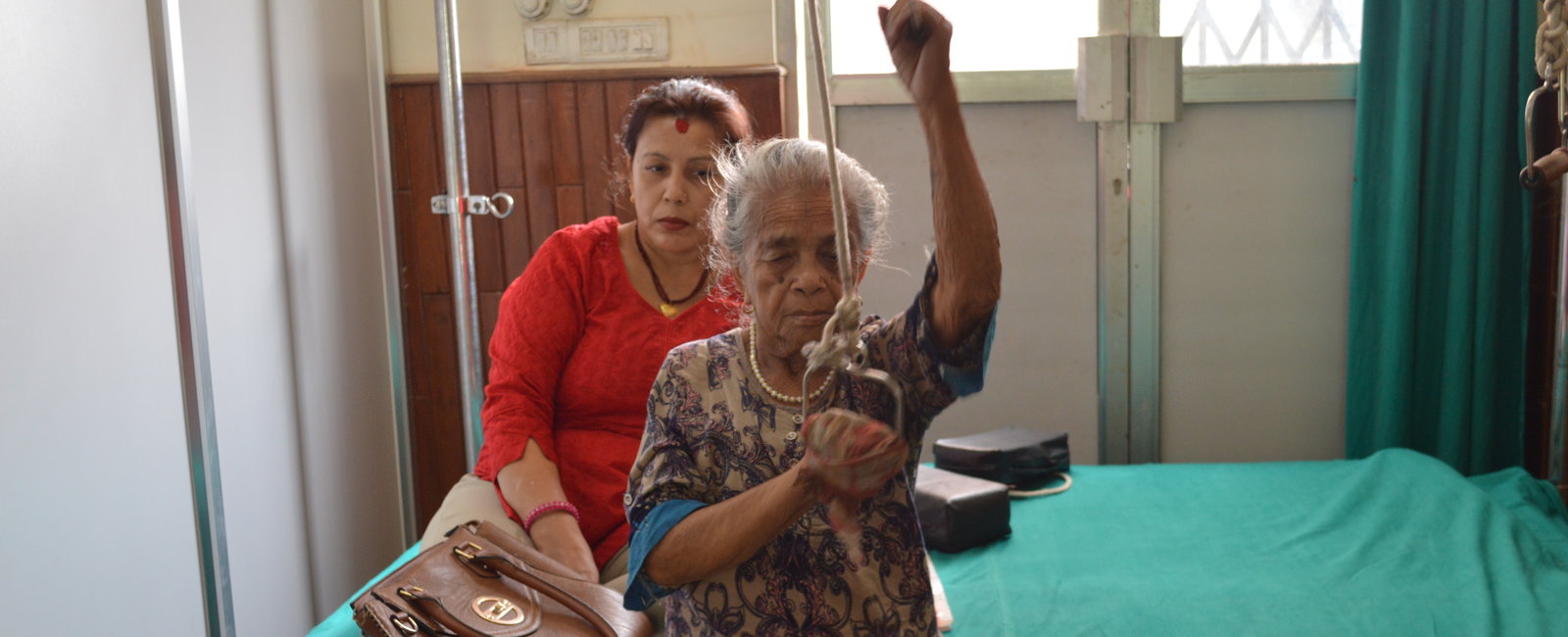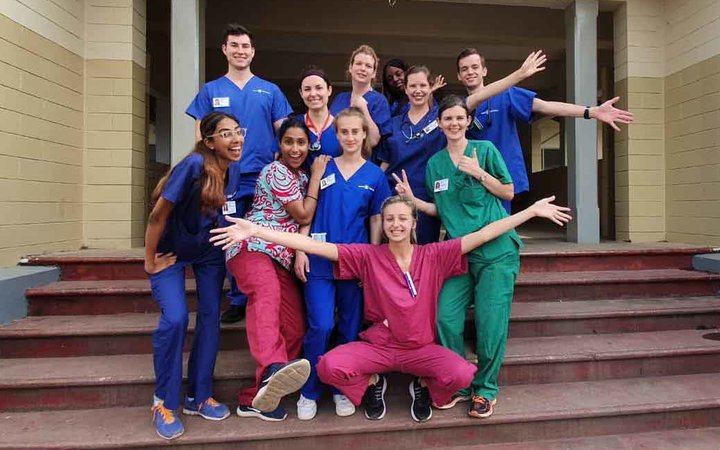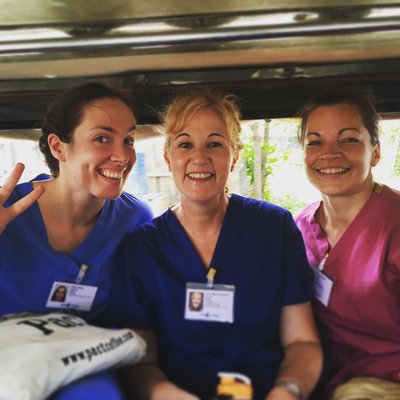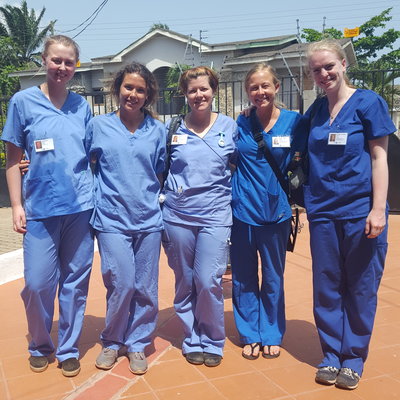Are you ready to elevate your physiotherapy expertise and broaden your horizons in ways you've never imagined? Step into the world of low-resource healthcare overseas – a life-changing opportunity to enrich your own practice and transform your understanding of global healthcare systems.
Experience firsthand the fundamental principles underpinning physiotherapy, taking you back to the core of your profession core. This journey will remind you of the essence of your discipline and the profound impact you can have on patients' lives.
And if you choose to undertake your placement with us you'll reap the benefits of our comprehensive service.
You'll get:
- Pre-departure preparation with our UK team
- Structured, supervised nursing elective placement
- English-speaking supervision
- Private, catered accommodation
- 24/7 in-country team
- Airport pick up and drop off
- + more
“I had never seen facial muscles targeted so specifically with manual therapy.”

Iloilo, The Philippines: One of my most memorable physiotherapy cases was when I assisted with treating a patient with Bell’s palsy and helped perform a facial massage, followed by proprioceptive neuromuscular facilitation (PNF), to treat the facial drop. I had never seen facial muscles targeted so specifically with manual therapy. The immediate treatment results were impressive. - Alexander Colvin, Glasgow Caledonian University
“In Nepali culture, there is a massive stigma around child disability”
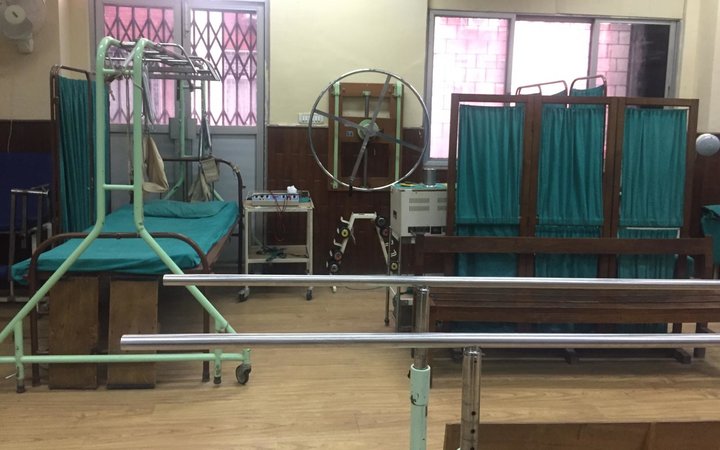
Kathmandu, Nepal: The two weeks I spent at the children’s hospital were very enjoyable as I have had very little paediatric experience before.
The team here was so friendly and engaging and asked lots of questions about physiotherapy in the UK, as well as imparting their knowledge about specific paediatric conditions.
There was a lot more emphasis than I had expected on teaching the parents how best to manage their child’s condition, as in Nepali culture, there is a massive stigma around child disability and very limited if any, community assistance for parents. - Ellie Marok, University of Birmingham
“There was a patient in Ghana who one day just woke up with Erb’s palsy.”
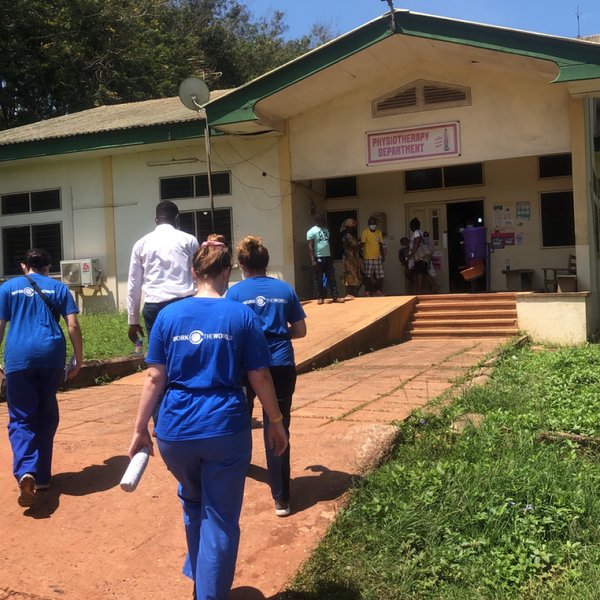
Takoradi, Ghana: When it came to cases, we saw a lot of Erb’s palsy. The staff told us this was common in Ghana but we don’t see that at all in the UK — cerebral palsy is more common for us. Anyway, there was a patient in Ghana who one day just woke up with Erb’s palsy. It had affected her cranial nerves to the point that one side of her face had started drooping. The treatment was electrotherapy, and they placed the pads on the patient’s face and sent an electric current through to try and reactivate the affected nerves.
As I said before, this isn’t something we do in the UK. But the patient said it was working for her, and over the two weeks I was on placement I definitely saw an improvement myself. - Sophia Azzou, King's College London
“I was able to see this young child blossom, going from being bedbound to waving at me with both hands and taking their first steps with me on my final day.”
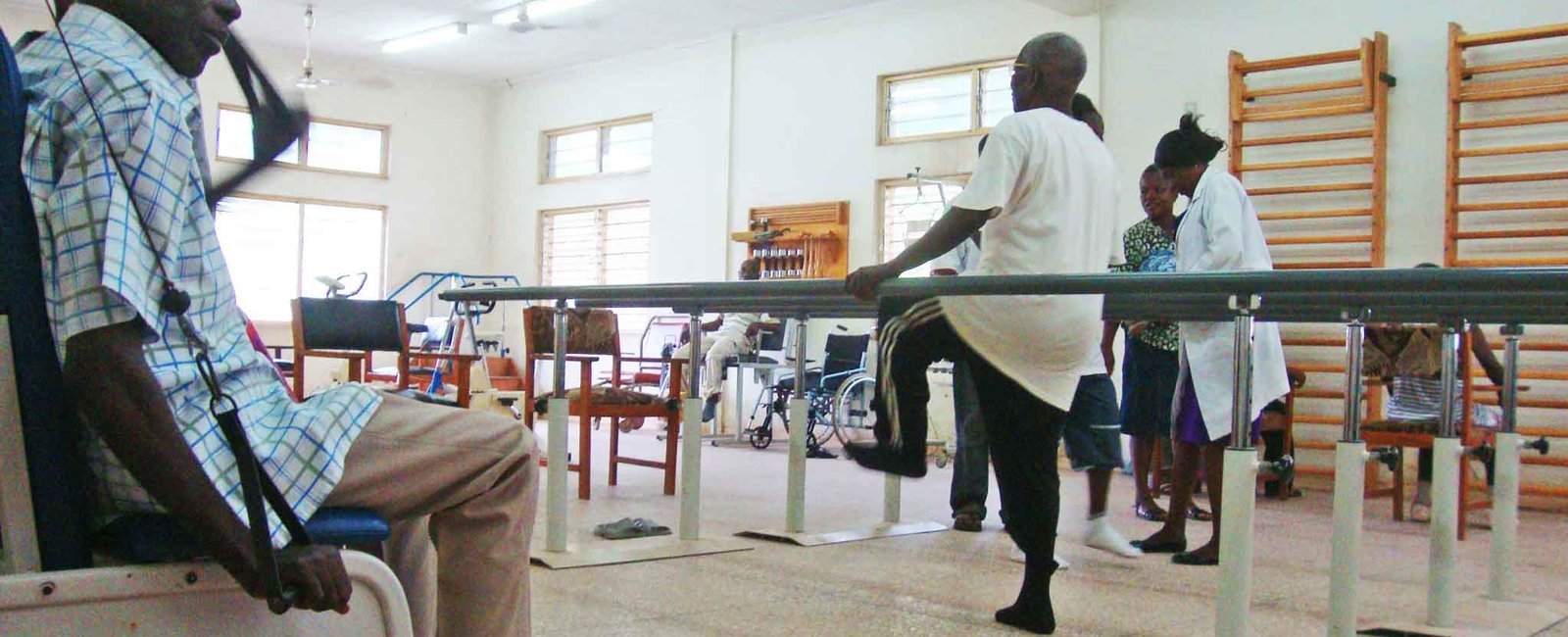
Dar es Salaam, Tanzania: One memory in particular will stay with me forever. One young patient on the paediatric ward had been hit by a car, resulting in a traumatic brain injury, causing a loss of movement in their right arm and poor coordination in both lower limbs.
The physiotherapist allocated this patient to me, under their supervision. Throughout the placement, I had the chance to assist with the assessment, care and treatment of this patient.
The treatment involved gait re-education, facilitation and visual stimulation. To which I tried my best to explain in Swahili. I watched this young patient progress throughout their rehabilitation. I was able to see this young child blossom, going from being bedbound to waving at me with both hands and taking their first steps with me on my final day. - Rebekah Morris, Cardiff University
“I found that evidence-based practice didn’t have as much emphasis in Vietnam”
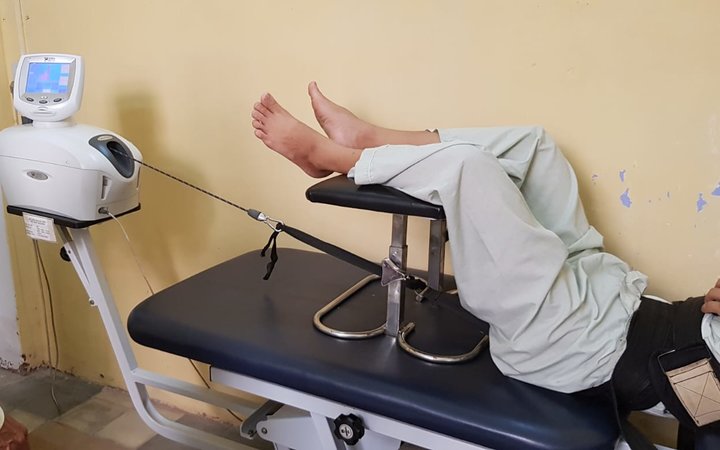
Hue, Vietnam: Being able to observe how treatment varied overseas was particularly valuable. Unlike the UK, I found that evidence-based practice didn’t have as much emphasis in Vietnam, with physiotherapists using long-established techniques such as ultraviolet light therapy and cupping therapy to deal with their patient’s complaints. - Emily Moules, Teesside University
“The young girl and her mother must have left it at least four months before they sought medical advice regarding the swelling”
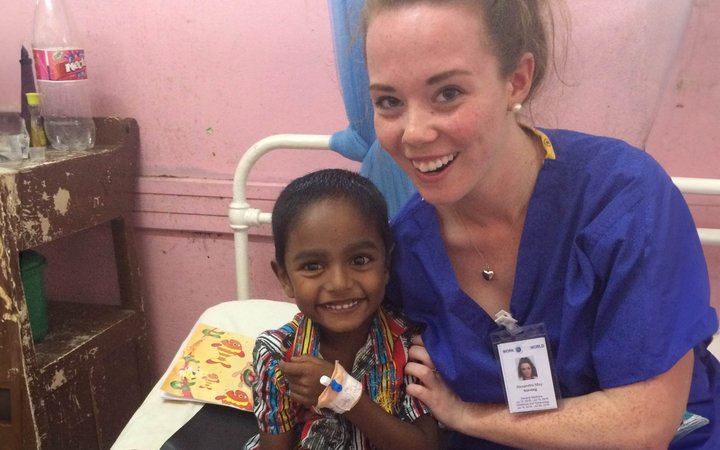
Kandy, Sri Lanka: A case that sticks in my mind is one involving a young girl who received a skin graft underneath her heel four years prior. Her leg got caught underneath a moving vehicle and her foot dragged along the road for a good few yards.
When I saw the girl, her heel had swollen to the size of a football. The patient received effleurage and compression bandages in an attempt to reduce the swelling before a second skin graft.
A local physiotherapist told me that the young girl and her mother must have left it at least four months before they sought medical advice regarding the swelling. - Siwan Jones, Cardiff University
Transform your perspective on physiotherapy:
An overseas physiotherapy elective gives you the rare opportunity to share the skills and knowledge from your experience in the UK with equally dedicated physiotherapists overseas. And it works both ways — if you keep an open mind, you’ll pick up techniques and perspectives that change your own approach to physiotherapy.
Undertaking a physiotherapy elective in a low-resource healthcare system will be an enriching experience that allows you to undergo profound personal and professional growth.
Embrace this once-in-a-lifetime opportunity and become a more versatile, adaptable, and compassionate physiotherapist as a result.

Start your journey now
Find out what your dream overseas elective could look like by exploring our huge range of destinations:
Find out what your dream overseas elective could look like by exploring our huge range of destinations:
